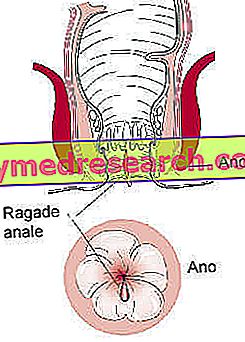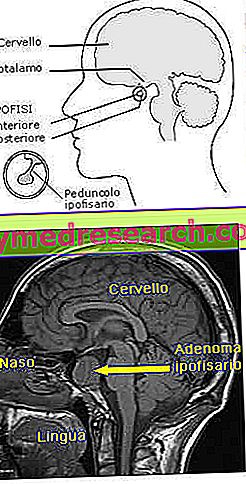Related articles: Nosebleed
Definition
Epistaxis is bleeding, of arterial or venous origin, coming from the nasal cavities. The phenomenon can go from a trickle to an important flow, from a minimum annoyance to a hemorrhage. The most frequent triggers are represented by a local trauma (eg sneezing, blowing the nose hard or sticking the fingers into the nose) and the dryness of the nasal mucosa.
Nose blood can be a symptom of upper respiratory tract infections and other local pathological processes (eg rhinitis, nasopharyngeal or paranasal sinus cancer, etc.). The presence of foreign bodies (especially in children) and some systemic diseases (eg AIDS, sarcoidosis, etc.) can promote bleeding.
Epistaxis, whatever its cause, is more frequent (and often more serious) in the case of bleeding disorders, coagulation abnormalities (eg thrombocytopenia, liver diseases and coagulopathies) and therapies with anticoagulants or antiplatelet agents (eg aspirin, ibuprofen, clopidogrel, heparin, and warfarin). Hypertension, on the other hand, can contribute to the persistence of already started nasal bleeding.
To address the correct diagnosis, it is important to determine from which side the nose bleed and the duration of the episode began. Important are the associated symptoms before the onset (eg symptoms of an infection, feeling of obstruction or nasal pain, pain in the face etc.).
Commonly, a simple compression of the nose wing against the septum, for about ten minutes, is sufficient to stop the bleeding. In some cases, however, other types of treatment are needed, such as, for example, local vasoconstrictors, nasal swabs, electrical or chemical coagulation.

Nose blood can have an abundant or mild flow depending on the haemorrhagic entity
Possible Causes * of Nosebleeds
- Hypertrophic adenoids
- adenoiditis
- AIDS
- Atherosclerosis
- Chikungunya
- Liver Cirrhosis
- Disseminated Intravascular Coagulation
- cholecystitis
- Dengue
- Coagulation disorders
- Ebola
- Haemophilia
- Paroxysmal Nocturnal Hemoglobinuria
- Lassa fever
- Marburg hemorrhagic fever
- Yellow fever
- Rheumatic fever
- Pregnancy
- Influence
- Hypertension
- Leprosy
- Leptospirosis
- Von Willebrand disease
- Myelofibrosis
- Pertussis
- Nasal polyposis
- Cold
- Rhinitis
- Ehlers-Danlos syndrome
- Typhus
- Essential thrombocythemia



